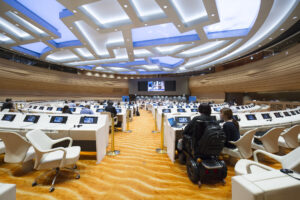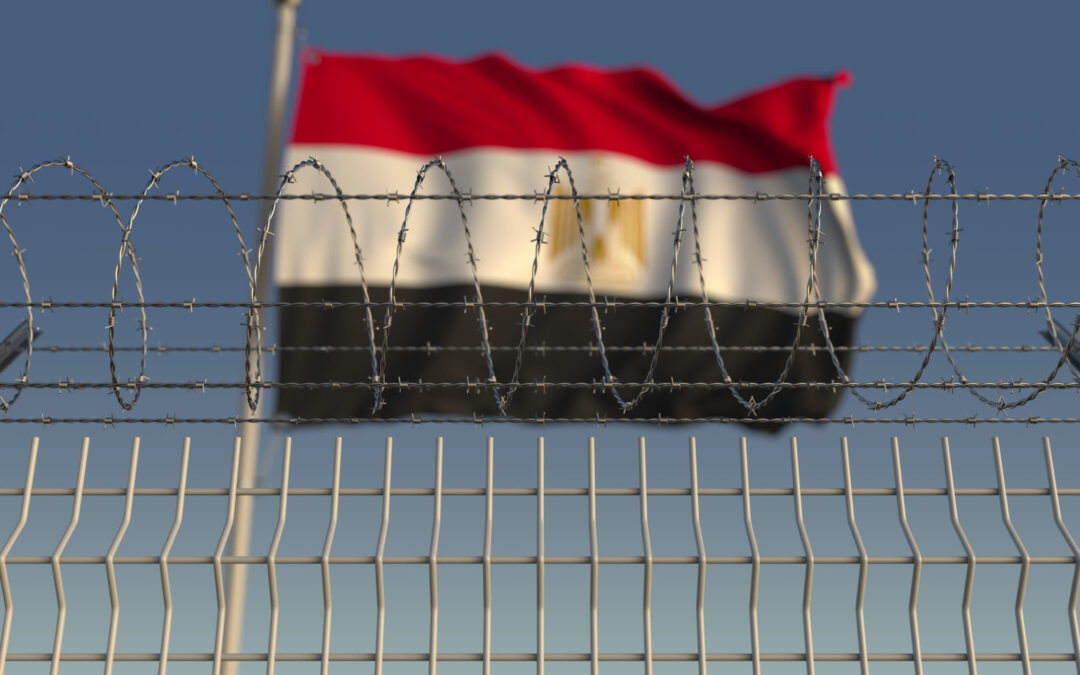
Jun 28, 2021 | News
Egyptian authorities must repeal the newly enacted Law 71, which criminalizes media coverage and other reporting on criminal trials, in a flagrant violation of the right to a public trial and the right to freedom of expression, the ICJ said today.
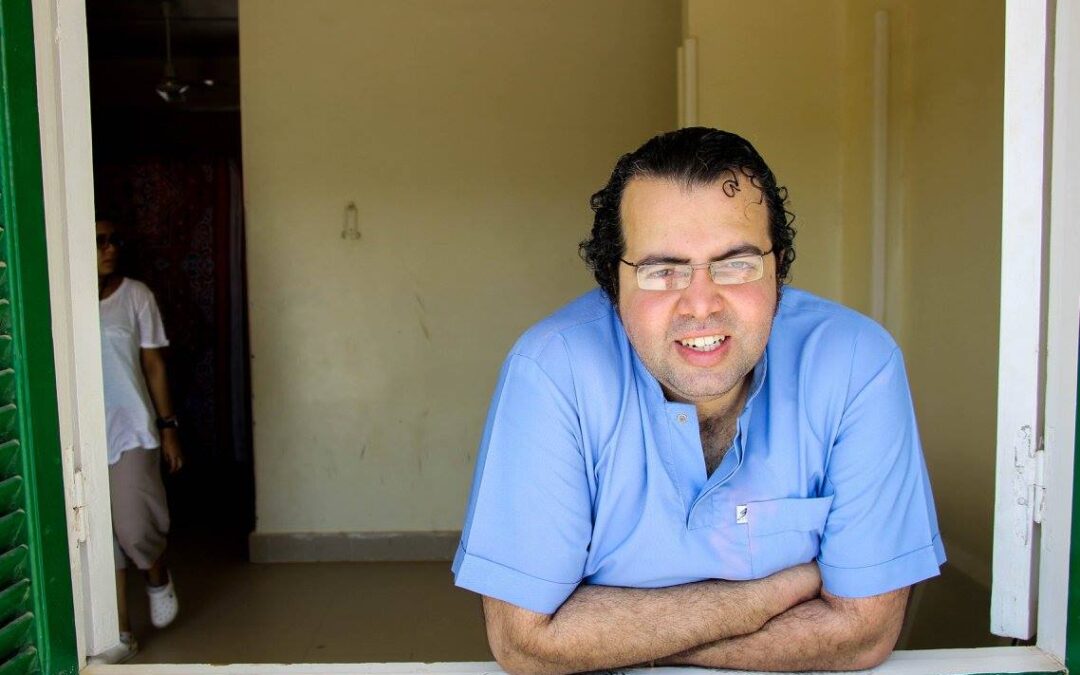
Jun 25, 2021 | News
The undersigned organizations express their deep concern about the continued disappearance of dentist and former parliamentarian, Mostafa Al-Naggar, on its 1000th day, and call on the Egyptian authorities to immediately disclose any information related to his whereabouts and to reveal his fate.
هذا البيان المشترك متوفر باللغة العربية أيضاً
The former parliamentarian, Mustafa Al-Naggar, a dentist and former head of the Justice Party, travelled to the southern Egyptian governorate of Aswan on September 27, 2018. Since then, his whereabouts and fate remain unknown. According to his wife, the last phone call between her and Mustafa Al-Naggar was on September 28, 2018, when he told her that he was in Aswan, and after that, the communication with him was cut off.
However, on October 10, 2018, his wife received a phone call from an unknown person on her home land line who told her that Al-Naggar had been arrested. Accordingly, on October 12, 2018, the family telegraphed the Public Prosecutor regarding his disappearance, and Mostafa Al-Naggar’s lawyers filed a complaint with the Aswan Prosecution on October 31, bearing the No. 1010 of 2018 Aswan petitions. The State Information Service issued a statement on October 18, 2018, denying that the security services had arrested Al-Naggar.
The Administrative Court of the State Council decided to accept a lawsuit filed by the family of Dr. Al-Naggar to reveal his whereabouts. According to the lawyer of the Egyptian Commission for Rights and Freedoms, the Circle of Rights and Freedoms in the State Council ruled on January 20, 2020 to “stop the implementation of the negative decision and oblige the Minister of Interior to disclose the place of detention of dentist and former parliamentarian Mustafa Al-Naggar” in lawsuit No. 56032/73 J, which was filed by Shaima Ali Afifi, Dr. Al-Naggar’s wife.
The ruling council of the International Parliamentary Union had issued a decision in November 2020 regarding the disappearance of Mustafa Al-Naggar, in which it expressed its concern about the failure of the Egyptian authorities to take any measures towards revealing the fate of the former parliamentarian, and calling on the Ministry of Interior to open an investigation into his disappearance.
During its session held in May 2021, the same Council reiterated its continuing concern about the Egyptian authorities’ unwillingness to disclose Mustafa Al-Naggar’s whereabouts. The same Council renewed its call on the Ministry of Interior to take the investigation into his disappearance seriously, and to take the necessary measures to locate him.
It should be noted that Dr. Al-Naggar suffers from asthma and kidney stones, and depriving him of treatment may put his life at risk. We also note that Mustafa Al-Naggar has taken legal measures to appeal the ruling by the Cairo Criminal Court issued on December 30, 2017, against him and others in absentia, imposing a sentence of three years’ imprisonment following the “insulting the judiciary case” (in case No. 478 of 2014). On 15 October 2015 the court of cassation upheld the prison sentence.
The undersigned organizations call upon the Egyptian authorities to immediately disclose any information related to Mustafa Al-Naggar’s whereabouts and fate, as well as on the Public Prosecution – as the investigative body entrusted with following up and investigating citizens’ complaints – to immediately and urgently investigate the complaints submitted by his family, and on security forces to immediately stop the practice of enforced disappearance against Egyptian citizens, and those who oppose government policies, and immediately disclose the places of detention of the forcibly disappeared.
Signatory organizations
Stop Enforced Disappearance Campaign
Arabic Network for Human Rights Information
Association for Freedom of Thought and Expression
Cairo Institute for Human Rights Studies
Committee for Justice
Egyptian Commission for Rights and Freedoms
Egyptian Front for Human Rights
Egyptian Initiative for Personal Rights
El-Nadim Center
Freedom Initiative
Human Rights Watch (HRW)
International Commission of Jurists (ICJ)
Intersection Association for Rights and Freedoms
Rafto Foundation
World Organisation against Torture (OMCT)
Contact:
Said Benarbia, Director, ICJ Middle East and North Africa Programme, t: +41-22-979-3817; e: said.benarbia(a)icj.org
Asser Khattab, Research and Communications’ Officer, ICJ Middle East and North Africa Programme, e: asser.khattab(a)icj.org

Jun 24, 2021 | News, Uncategorized
Egyptian authorities must immediately quash the convictions of Hanin Hossam and Mawadda Al-Adham and immediately and unconditionally release the two “TikTok girls,” the ICJ said today.
هذا البيان الصحفي متوفر باللغة العربية أيضاً
On 20 June 2021, the Cairo Criminal Court sentenced 20 year-old Hanin Hossam and 23 year-old Mawadda Al-Adham to 10 and six years in prison, respectively, and a fine of 200.000 Egyptian pounds each (12,778 US Dollars), after convicting them on “human trafficking” charges arising from their social media activities.
“Their convictions must be quashed and Hanin Hossam and Mawadda Al-Adham and others imprisoned must be immediately and unconditionally released,” said Said Benarbia, ICJ’s Middle East and North Africa Director.
“The role of the judiciary is to protect and uphold everyone’s right to freedom of expression, not to crack down on its legitimate exercise in the name of some purported and ill-defined moral or social values.”
The two women, known as the “TikTok girls”, were arrested in April 2020 for violating “public morals” and “undermining family values” after publishing videos, including some in which they were shown dancing or signing, on the social media platform TikTok. In July 2020, a Cairo Court convicted and sentenced Hossam and Al-Adham to two years in prison; their conviction was overturned on appeal in January 2021.
However, prosecutors moved swiftly soon after their successful appeal to charge them in another case with “human trafficking”, and “using girls in acts contrary to the principles and values of Egyptian society with the aim of gaining material benefits.” The sentences imposed on 20 June by the Cairo Criminal Court on Hossam and Al-Adham arise from their conviction on those charges.
The charges are based on the 2018 cyber-crimes law, which effectively criminalizes the lawful and legitimate exercise of the right to freedom of expression and association.
“Egypt’s military and government are turning Egypt into an open-air prison in which any and all forms of free expression are crushed,” added Benarbia.
On 12 March 2021, 31 UN Member States delivered a joint declaration at the 46th session of the UN Human Rights Council denouncing the human rights situation in Egypt, including restrictions on freedom of expression.
Contact:
Said Benarbia, Director, ICJ Middle East and North Africa Programme, t: +41-22-979-3817; e: said.benarbia(a)icj.org
Asser Khattab, Research and Communications’ Officer, ICJ Middle East and North Africa Programme, e: asser.khattab(a)icj.org
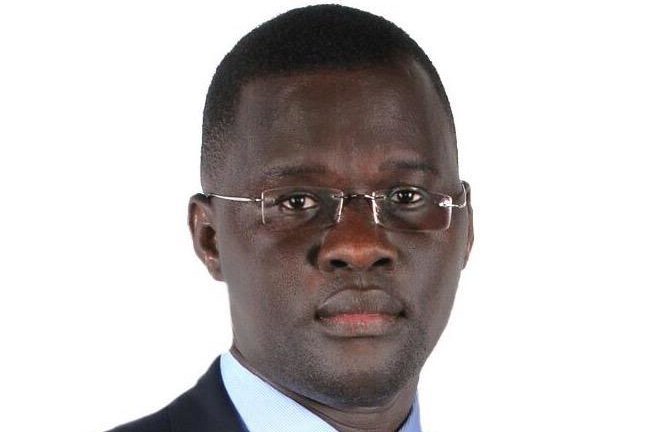
Jan 26, 2021 | News
Lawyers for Lawyers (L4L) and the ICJ condemn the spurious charges under the Anti-Money Laundering brought against Ugandan lawyer and human rights defender Nicholas Opiyo and call for them to be dropped.
The organizations consider that this action stands to impede work of lawyers in the country of carrying out their professional functions, particularly regarding human rights work.
There do not appear to be legitimate grounds for these charges or the ongoing prosecution. The organizations are further concerned at numerous alleged violations surrounding the arrest, detention and pre-trial proceedings.
Nicholas Opiyo, Executive Director of Chapter Four Uganda, a civil rights charity working to defend human rights and civil liberties, was arbitrarily arrested on 22 December 2020, not informed of the reason for his arrest and effectively held in incommunicado detention for a prolonged period.
On 22 December 2020, plain clothed law enforcement officers who did not identify themselves seized Mr. Opiyo from a restaurant, along with four other individuals, including three lawyers.
He was later charged under section 3 (c) of the Anti-Money Laundering Act on allegations that he acquired USD 340,000 through the bank account of Chapter Four Uganda, knowing that “the said funds were proceeds of crime”.
Chapter Four Uganda have confirmed that these are legitimate donor funds for lawful purposes.
Sophie de Graaf, the Director of Lawyers for Lawyers, said:
“Lawyers play a vital role in the protection of the rule of law and human rights. It is the responsibility of lawyers to protect and establish the rights of citizens from whatever quarter they may be threatened. Their work is indispensable for ensuring effective access to justice for all. To fulfil their professional duties effectively, lawyers should be able to practice law freely and independently, without any fear of reprisal.”
Kaajal Ramjathan-Keogh, ICJ’s Africa Director, added:
“Uganda is required under its Constitution and under its international legal obligations, to respect and protect the independence of lawyers. These baseless charges seek to intimidate and harass Mr. Opiyo and interfere with his work as a lawyer”.
Lawyers for Lawyers and the ICJ call on the Ugandan authorities to drop the spurious charges against Mr. Opiyo and to ensure that his rights to due process and fair trial are fully respected.
The organizations emphasize that the responsibilities authorities must comply with Uganda’s international legal obligations to ensure that members of the legal profession can carry out their professional functions without harassment and improper interference, including arbitrary arrest and incommunicado detention.
Background
Article 23 of Uganda’s Constitution stipulates that suspects under detention should be brought before a court of law within 48 hours from the time of arrest. Article 27 of Uganda’s Constitution requires that a person charged with a criminal offence should be informed immediately of the charges against them. Article 28 of the Ugandan Constitution guarantees for every person the right to a fair hearing and the right to legal representation. These rights are protected under the International Covenant on Civil and Political Rights and the African Charter on Human and Peoples Rights, to which Uganda is a party.
International and regional standards on ensuring the independence of lawyers are set out in the UN Basic Principles on the Role of Lawyers (UN Basic Principles) and the Principles and Guidelines on the Right to a Fair Trial and Legal Assistance in Africa.
Contact:
Kaajal Ramjathan-Keogh, ICJ Africa Director Kaajal.Keogh(a)icj.org +27 84 5148039
Tanveer Jeewa, Media and Legal Consultant Tanveer.Jeewa(a)icj.org
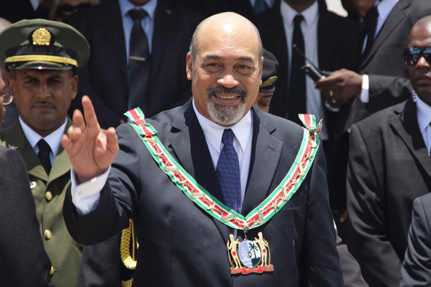
Oct 28, 2020 | News
On Friday, 30 October 2020, the Military Court of Suriname (“Krijgsraad”) is expected to resume the appeal process against Suriname’s former president Desi Bouterse. The ICJ will maintain its longstanding monitoring of this trial, which began in 2012.
As of 2020, the trial monitoring exercise will be led by Godfrey Smith SC who is a Senior Counsel, former Attorney General of Belize, and a former High Court judge and acting Justice of Appeal of the Eastern Caribbean Supreme Court.
The Court has announced that the general public will not be permitted to attend the hearing due to the COVID-19 measures.
While Suriname has a general obligation to ensure that trials are public, some restriction on public attendance of a trial maybe appropriate and even necessary to protect public health.
However, the authorities retain a duty to make accommodation for public access to the proceedings, for example by making the proceedings available through video transmission. In this respect, it is critical that efforts be made to ensure transparency, both in the process and in the outcome of the hearing.
Background to the 2020 Hearing
Desi Bouterse was sentenced on 29 November 2019 to 20 years in prison while he was still president of the country. He was found guilty of planning and ordering the murder of 15 political prisoners on 8 December 1982 at the military barracks of Fort Zeelandia. No arrest warrant has ever been issued in relation to either the charge, the conviction or the sentence.
The appeals process started on 22 January 2020. However, after one of the judges fell ill, the case was postponed to 31 March 2020. The merits of the case have not yet been heard.
As with many pending matters in Suriname, the trial was postponed several times due to the COVID-19 pandemic.
The ICJ maintains that the judicial process should run its course with due impartiality, independence and fairness to all parties concerned, and insists that the principles of the rule of law be respected by all.
The ICJ reminds the authorities of the State’s obligation to ensure a fair trial by a competent, independent, and impartial tribunal as guaranteed under article 14 of the International Covenant on Civil and Political Rights, to which Suriname is a party. It also recalls the obligation to ensure accountability for gross human rights violations, including the extrajudicial killings of which Desi Bouterse is accused.
Contact:
Godfrey Smith SC, ICJ monitor of the trial of former President Bouterse, t: 501-610-3114, e: godfrey(a)byronsmithlaw.com






